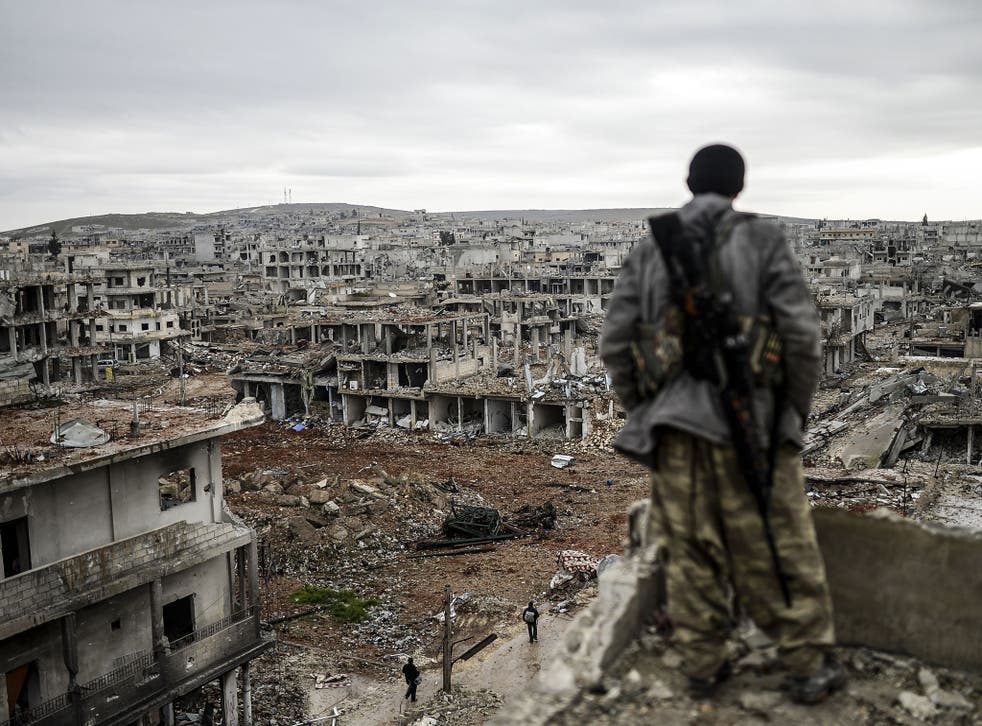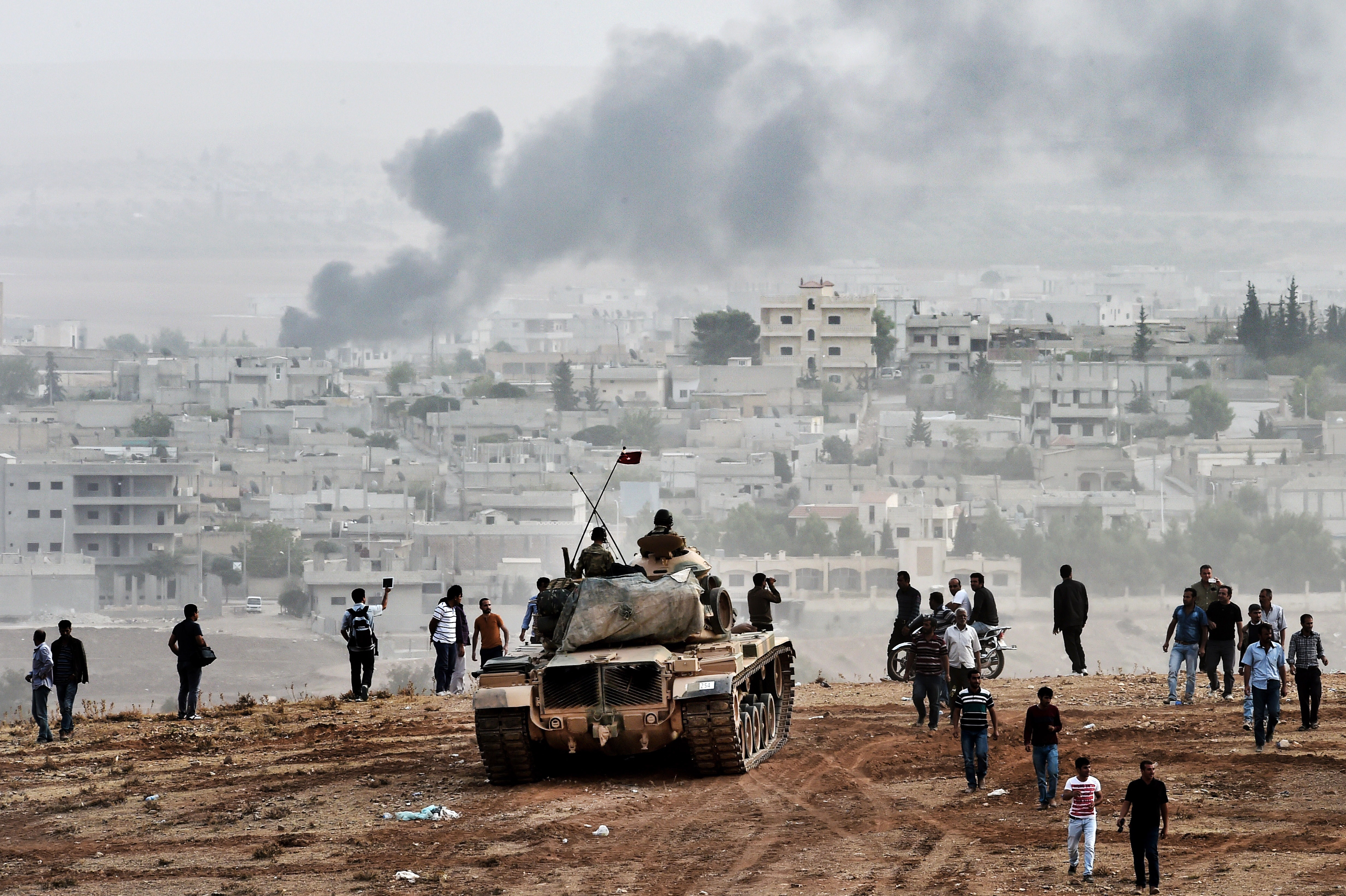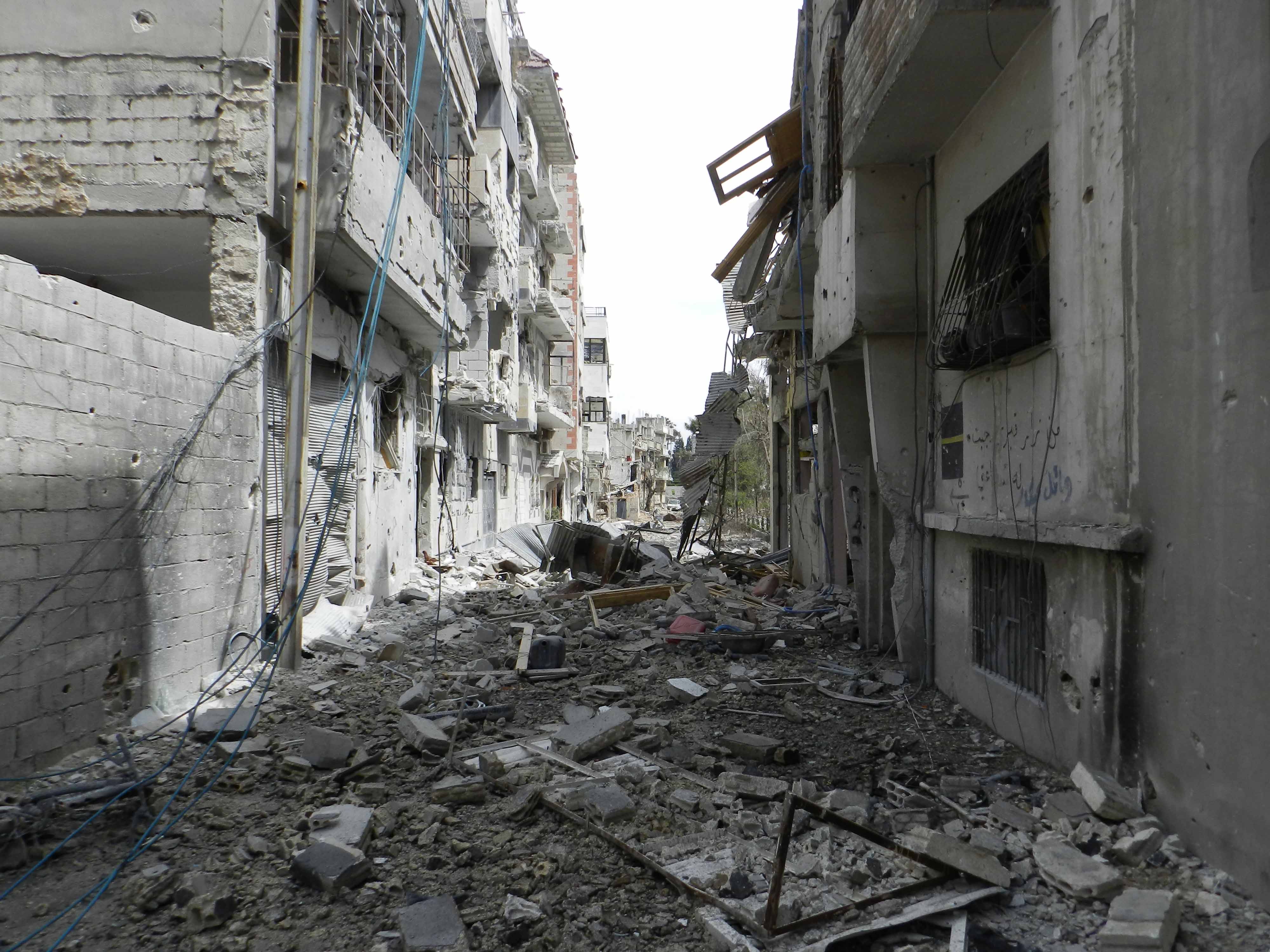Food Scarity Caused Syrian Civil War
Furthermore the rest of Iraq would also benefit in the short term from importing food from Syria to make up for diminished production thereby addressing the poor conditions in these war-torn governorates and also dwindling water supplies caused by dams built by Turkey and Iran. The scarcity of production.

Global Warming Helped Trigger Syria S Civil War Global Warming Climate Change Climate Change Effects
The impact of the Syrian Civil War.

Food scarity caused syrian civil war. Over the last six months the cost of staples has doubled as the value of the Syrian pound has plunged by more than two-thirds and. Syrians face ever more acute food shortages and price rises as spreading civil war sends agricultural production tumbling and threatens to damage crops such as wheat and barley. Despite the sharp decline in agricultural production where the GDP of Agriculture has fallen by half in 2018 in comparison with 2010 especially for rainfed irrigated crops due to various climatic conditions.
Food Crisis in Syria The Syrian Civil War has created a food crisis in Syria. Food water and climate are complex interconnected systems that when disrupted can cause severe social and political shocks. The WFP warns Syria.
The superpowers and regional powers including Syria used their allies in Lebanon to wage their own proxy wars in the midst of the 17-year-long Lebanese Civil. Gore claimed that climate refugees from Syria were a result of food climate change caused shortages from the Syrian civil war. State agencies have a limited capacity to respond to growing food.
Many Syrians rely on international aid from neighbouring countries and international agencies like the United Nations. Innovation in agricultural methods is one approach that could be taken. UN Secretary-General António Guterres and the human rights group Amnesty International were among those who accused the Syrian regime of carrying out war crimes.
This disastrous war damaged relations throughout the Middle East and achieved little for Syria. Brent Eng and José Ciro Martinez note that until 2007 Syrias self-sufficiency in food production specifically wheat was a cause célèbre in the wider region. Food scarcity causes conflicts but so can food abundance.
Before the region could recover civil war engulfed Syrias southern neighbour Lebanon. Climate Change Helped Spark Syrian War Study Says. But the next five years mismanagement of resources reduced subsidies and drought pushed a robust agricultural sector into decline raising food.
This rapid increase in population is a factor that contributed to the countrys scarce water status. How drought and rising prices led to conflict in Syria. Therefore to reduce the number of victims of conflict society must ensure food production and the supply of water and energy.
Whether it was a primary or substantial factor is impossible to know but drought can lead to devastating consequences when coupled with preexisting acute vulnerability caused by poor policies and unsustainable land use practices in Syrias case and perpetuated by the slow and ineffective response of the Assad regime. Water became scarce and food expensive. Food prices in Syria have risen to their highest levels since the start of the countrys nine-year civil war.
He explained You can conceptualise some of the factors that led to the Syrian crisis as a complex and dynamic feedback loop. Similarly over-extraction of groundwater and a dwindling water supply have added to tensions and increase Syrias food and water insecurity. Similarly Kurdistan would benefit from decreasing its dependency on Turkey currently its main food.
The former vice president pointed to a 2006-2010 drought he blamed on climate change that pushed 15 million who lived on Syrian farms into the cities. Increased food needs in the future can be met by for example innovation in agriculture. The devastating civil war that began in Syria in March 2011 is the result of complex interrelated factors.
An estimated 17 million people in Syria more than 50 of the remaining population are considered acutely food insecure with an additional 22 million at risk. Are among the types of unrest that can lead to civil war and all can be linked to. They could let the innocent civilians have food like Union forces did when they took control of the southern city of New Orleans in 1862.
The suffering and social chaos caused by the drought were important drivers of the initial unrest. A sand tornado passes through as thousands of Kurds stream into Dikmetas Turkey from Syria in. The ongoing famine in war-prone Somalia has led to much speculation about the link between violent conflict and food insecurity.
Syria has experienced the collapse of its agricultural system as a result of a severe drought and years of civil war. The role of agricultural policy deserves particular attention for the way it has exacerbated the Syrian civil war. Recent studies theorize that in Syria.
Yemen A 2018 report by the UNs World Food Programme WFP referred to the situation in Yemen as the worst human-made disaster in the modern history of the world one that starkly demonstrated the. ABU DHABI United Arab Emirates Syrians face ever more acute food shortages and price increases as a spreading civil war. The combatants of Syrias civil war could do the right thing.
Upon arrival they found a population on the brink of starvation. According to the United Nations nearly four million Syrians a fifth of the population are unable to produce or buy enough food and farmers are short of the seed and fertilizers they need to plant their crop. The conflict has turned Syria into a country whose population suffers from a severe food crisis in terms of availability access use sustainability and equitable distribution.
The World Food Program warns a growing number of civilians in war-torn Syria face food shortages at a time when many people are suffering from acute hunger. Syrians have been facing acute food insecurity as a result of the Syrian Civil War which began in 2011. The desire of the United States to decrease their reliance on international oil markets by increasing their production of biofuel has been convincingly linked to rising global food prices.
The focus of the conflict is regime change but the triggers include a broad set of religious and sociopolitical factors the erosion of the economic health of the country a wave of political reform sweeping over the Middle East and North Africa MENA and Levant. In Syria a devastating drought beginning in 2006 forced many farmers to abandon their fields and migrate to urban centers. Even in mainly Kurdish areas along the northern and eastern border that are less affected by the conflict such as the city of Afrin and in Raqqa the border crossings with Turkeysuch as Tal Abyadhave been crucial conduits of food supplies and goods.
Food shortage is one of the root causes of war. Theres some evidence that the migration fueled the civil war there. A recent paper released by the United Nations World Food Programme WFP Policy Planning and Strategy Division analyses the link between food.
Some commentators have also connected this years political revolutions in Egypt and Tunisia to record high food prices.

What Foreign Powers Want From The Syrian War News Dw 12 04 2018

Syrian Refugee Crisis Facts Faqs And How To Help World Vision

Syrian Cities Damage Atlas Eight Year Anniversary Of The Syrian Civil War Thematic Assessment Of Satellite Identified Damage Syrian Arab Republic Reliefweb

Syrian Civil War Fast Facts Cnn

Komentar
Posting Komentar